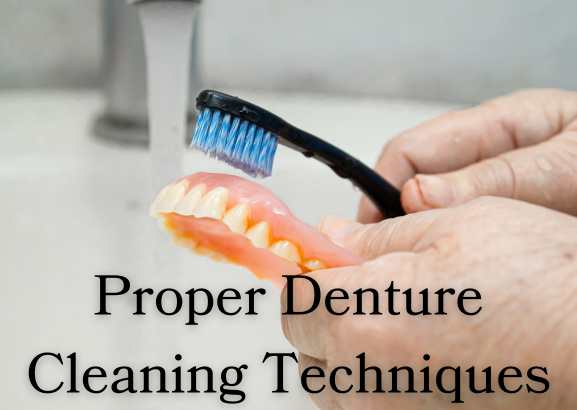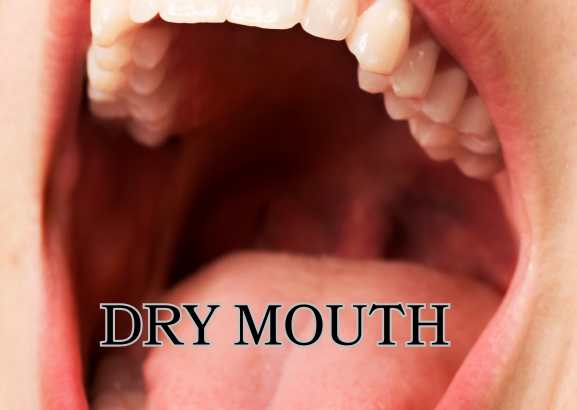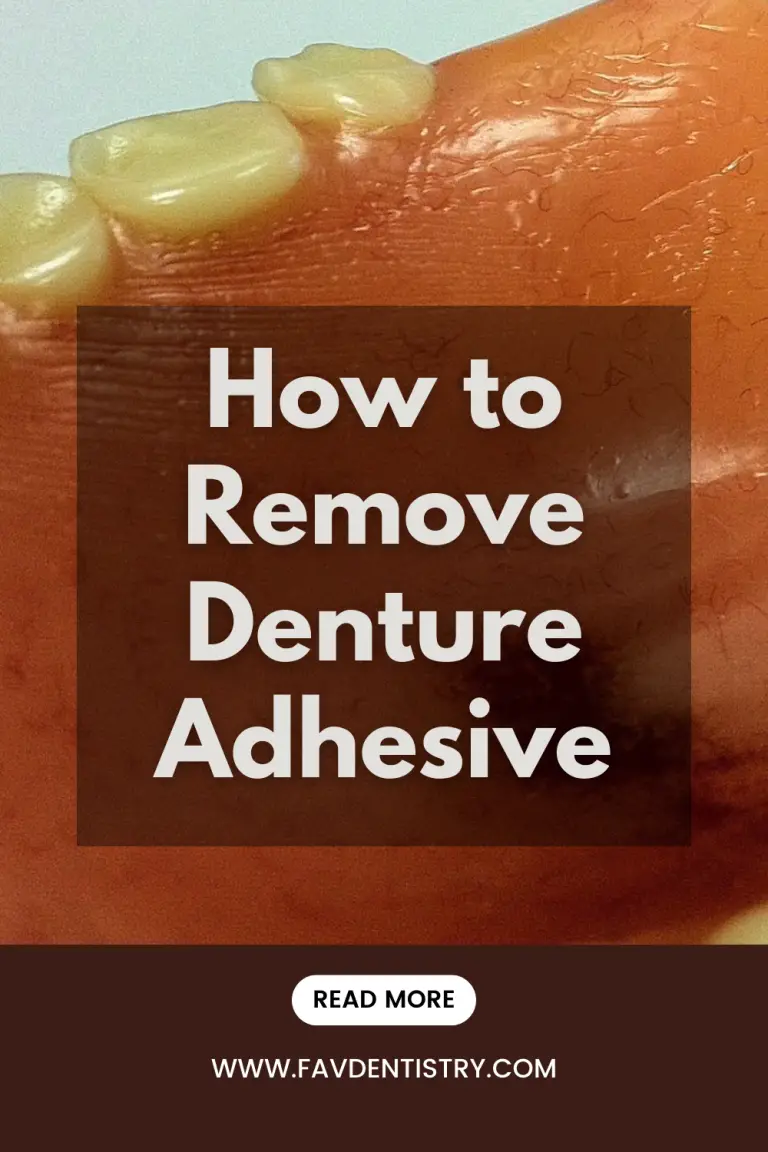Why Remove Dentures at Night? Expert Tips for Optimal Oral Health
Last Updated on 4 months by DR. ALBIN SIPES
Removing dentures at night is necessary to give your gums and jawbone a chance to rest and recover, improving oral health. By taking them out, you allow your mouth to breathe and prevent bacteria growth, making denture cleaning easier and extending their lifespan.
Additionally, removing dentures before sleeping can prevent any potential choking hazards during sleep. Ultimately, it is important to remove dentures at night for comfort, hygiene, and to maintain a healthy oral environment.
Why Removing Dentures at Night is Important
With dentures comes a whole new routine for oral health. In addition to brushing and rinsing the dentures at night, wearers should avoid sleeping in dentures whenever possible. Instead, dentures should be left to soak in a soaking solution or room-temperature water overnight so that gums can rest. This also allows denture wearers to clean their gums properly, which helps prevent the buildup of fungi and oral bacteria.
When dentures are not removed at night, the gums don’t get adequate rest, leading to gum irritation. If dentures aren’t cleaned regularly, tartar builds up, potentially causing oral odor and diseases such as gum inflammation and thrush. While consistent care prevents these conditions, removing dentures every night significantly reduces the risk of more serious oral health problems over time.
Preventing Bone Loss
Wearing dentures overnight can accelerate bone resorption, or the shrinking of the jawbone, a critical issue that could affect the long-term fit of your dentures. Removing dentures at night helps slow this process, preserving the bone structure and ensuring your dentures maintain a snug, comfortable fit for longer.
Avoiding Dry Mouth and Bad Breath
Dentures can block the natural flow of saliva, which plays a vital role in keeping your mouth clean. By removing dentures at night, saliva can properly hydrate and cleanse your gums, reducing the risk of dry mouth and bad breath caused by bacterial buildup. Wearing dentures overnight can lead to bad breath, a common issue linked to improper denture hygiene.
Improved Denture Cleaning
Nighttime removal also allows for more effective cleaning. Leaving dentures in while you sleep can cause food and plaque to accumulate. By soaking dentures overnight, you give yourself a better chance to brush and clean them thoroughly, preventing plaque buildup, infections, and oral odor.
Preventing Serious Conditions like Pneumonia

Sleeping in dentures may also increase the risk of pneumonia. When moisture builds up in the mouth while sleeping, dentures can interfere with the natural process of swallowing saliva, potentially drawing moisture into the lungs. This may lead to serious respiratory conditions such as pneumonia. Removing dentures before bed helps to prevent this dangerous situation.
Alternatives to Denture Adhesive and Long-Term Care
If you find yourself relying heavily on denture adhesives to keep your dentures secure, it may be time to explore alternatives such as dental implants. Implants offer a more permanent and secure solution, removing the need for adhesives altogether.
Proper Denture Cleaning Techniques

Dentures play a crucial role in enhancing our smiles and the overall quality of our lives. They enable us to eat, speak, and regain the confidence we may have lost due to missing teeth. However, just like natural teeth, dentures require regular care and attention to maintain their appearance and function.
One of the most important aspects of denture care is proper cleaning. In this section, we will explore the two key techniques for cleaning dentures: brushing to remove debris and plaque, and soaking to maintain hygiene and prevent bacterial growth.
Brushing Dentures To Remove Debris And Plaque:
Effective denture cleaning starts with regular brushing. By brushing your dentures daily, you can remove food particles, debris, and plaque that accumulate throughout the day. Here are the key points to keep in mind when brushing your dentures:
- Use a soft-bristle toothbrush or a denture brush specifically designed for denture cleaning.
- Avoid using regular toothpaste, as it can be too abrasive and damage the surface of the dentures. Instead, use a mild denture cleanser or soap.
- Make sure to clean all surfaces of the dentures, including the gums, teeth, and metal clasps if applicable.
- Rinse your dentures thoroughly after brushing to remove any remaining cleanser or debris.
Soaking Dentures To Maintain Hygiene And Prevent Bacterial Growth:
In addition to regular brushing, soaking your dentures is another essential part of proper denture care. Soaking helps to remove stains, keep your dentures odor-free, and prevent bacteria from proliferating. Here are a few key points to remember when soaking your dentures:
- Use a denture cleaning solution or denture cleanser tablets specifically formulated for soaking.
- Follow the instructions provided by the product manufacturer, ensuring the correct amount of time for soaking.
- Avoid using hot water for soaking, as it can cause dentures to warp or lose their shape.
- After soaking, remember to rinse your dentures thoroughly before wearing them again.
By incorporating these proper denture cleaning techniques into your daily routine, you can ensure that your dentures remain clean, fresh, and free from debris and plaque. Remember, maintaining good oral hygiene is essential for the longevity and effectiveness of your dentures, so don’t overlook the importance of regular cleaning.
Take pride in your smile, and enjoy the confidence that comes with it.
Maintaining Denture Fit And Comfort
Ensuring the proper fit and comfort of your dentures is crucial for a variety of reasons. Not only does it affect your ability to chew and speak, but it also plays a vital role in overall oral health. Part of this maintenance involves removing your dentures at night, allowing your oral tissues to recover and relax during sleep.
Allowing Oral Tissues To Recover And Relax During Sleep
During the day, the pressure and movement of dentures can put strain on your gums and underlying oral tissues. Removing your dentures at night gives these tissues a chance to breathe, recover, and rejuvenate. It allows blood circulation to normalize and reduces the risk of irritation or inflammation.
By giving your oral tissues a break, you can minimize discomfort and ensure better long-term oral health.
Strategies for preventing fit issues and discomfort:
- Clean your dentures thoroughly and remove any residual adhesive before putting them back in the case for the night.
- Gently brush your gums, tongue, and palate with a soft toothbrush to remove any debris and stimulate blood flow.
- Soak your dentures in a denture cleanser or a mild solution to keep them clean and free from bacteria.
- Massage your gums with a clean finger or a damp cloth to promote blood circulation and maintain healthy tissues.
- Consider using a denture soaking solution that helps prevent plaque buildup and keeps your dentures fresh.
- Schedule regular check-ups with your dentist to monitor the fit of your dentures and ensure any adjustments are made promptly.
By adopting these strategies and removing your dentures at night, you can maintain their fit and comfort, promoting better oral health in the long run. Remember, proper care and maintenance are vital to ensure the longevity of your dentures and your overall well-being.
The Importance Of Regular Dental Check-Ups:
- Preventive care and maintenance: Regular dental check-ups allow your dentist to examine the condition of your dentures, detect any issues early, and make necessary adjustments. They can also identify any underlying oral health concerns that may affect the fit and function of your dentures.
- Oral health assessment: Dentists can assess the overall health of your mouth and gums during routine check-ups. They can identify signs of gum disease, oral infections, or other conditions that may require treatment.
- Denture evaluation and adjustments: Over time, dentures may need adjustments to ensure they fit properly. Regular dental visits allow your dentist to make necessary modifications to improve comfort, functionality, and aesthetics.
- Oral cancer screening: Regular dental check-ups include oral cancer screenings, which can help detect early signs of potentially life-threatening conditions. Detecting oral cancer in its early stages increases the chances of successful treatment.
Maintaining good oral health habits and attending regular dental check-ups are crucial for denture wearers. By incorporating these habits into your daily routine, you can ensure the longevity of your dentures and enjoy optimal oral health. Remember, taking care of your teeth and gums goes beyond just having a beautiful smile – it contributes to your overall well-being.
So, make oral care a priority and prioritize your oral health!
Tips For Managing Denture-Related Dry Mouth
With the increasing popularity of dental implants, people may wonder why it is recommended to remove dentures at night. Dry mouth is a common side effect of wearing dentures, and managing this discomfort during the night can be challenging. In this section, we will discuss the causes and symptoms of dry mouth and provide some techniques to alleviate the discomfort.
Understanding The Causes And Symptoms Of Dry Mouth:

- Decreased saliva production: Wearing dentures can restrict the natural flow of saliva, leading to dry mouth.
- Medications: Certain medications can cause dry mouth as a side effect, making it even more uncomfortable for denture wearers.
- Medical conditions: Dry mouth can also be a symptom of underlying medical conditions such as diabetes or sjogren’s syndrome.
- Chewing and swallowing difficulties: Denture wearers may experience difficulties in chewing and swallowing, leading to decreased saliva flow and resulting in dry mouth.
- Irritation and inflammation: Ill-fitting dentures can cause irritation and inflammation of the oral tissues, further exacerbating the dry mouth symptoms.
Techniques To Alleviate Dry Mouth Discomfort During The Night:
- Stay hydrated: Ensure you drink plenty of water throughout the day to help maintain adequate saliva production.
- Avoid caffeine and alcohol: These substances can contribute to dry mouth, so it is best to limit their intake, especially before bedtime.
- Use a humidifier: Adding moisture to the air in your bedroom can help alleviate dry mouth symptoms during the night.
- Opt for sugar-free gum or lozenges: Chewing sugar-free gum or using sugar-free lozenges can stimulate saliva production and provide temporary relief from dry mouth.
- Practice good oral hygiene: Properly clean your dentures and mouth before going to bed to minimize the risk of irritation and inflammation, which can worsen dry mouth symptoms.
- Seek professional advice: If you are experiencing persistent dry mouth, consult with your dentist or healthcare professional for guidance and potential treatment options.
By understanding the causes and symptoms of dry mouth and implementing these techniques to alleviate discomfort during the night, you can improve your overall comfort and oral health as a denture wearer. Remember, it’s essential to take care of your oral health to maintain a happy and healthy smile!
Avoiding Denture-Related Complications
A good night’s sleep is essential for overall health and well-being. While most people remove their dentures before bed, there are still some who overlook this important step. This blog post will explore the reasons why it is crucial to remove dentures at night, focusing specifically on the potential complications that can arise from neglecting this practice.
Potential Complications Of Not Removing Dentures At Night:
- Oral tissue irritation: Wearing dentures for an extended period, especially during sleep, can cause irritation to the oral tissues. The pressure exerted on the gums and surrounding areas can result in soreness, redness, and inflammation.
- Increased risk of fungal infections: When dentures are kept on overnight, it creates a warm and moist environment, which is an ideal breeding ground for fungi. This can lead to the development of conditions like oral thrush, characterized by white patches and discomfort in the mouth.
- Bone resorption: Constant pressure applied by dentures can stimulate the process of bone resorption, wherein the underlying jawbone gradually diminishes in size and density. This can negatively impact the fit of the dentures and may require frequent adjustments or replacements.
By adhering to these expert tips, individuals can minimize the risk of denture-related complications, protect their oral tissues, and maintain a healthy smile. Remember, taking proper care of dentures is crucial for oral health and overall well-being.
Improving Sleep Quality With Denture Removal
Enhancing Sleep Patterns By Allowing The Mouth To Rest
When it comes to achieving a good night’s sleep, many factors come into play. And if you are a denture wearer, the simple act of removing your dentures before bed can significantly improve your sleep quality. Here’s why denture removal at night is crucial for enhancing your sleep patterns:
- Avoiding discomfort and pain: Dentures can sometimes put pressure on your gums and oral tissues. Leaving them in overnight can lead to discomfort and even pain, making it difficult for you to fall asleep and stay asleep throughout the night. By removing your dentures, you allow your mouth to rest and relieve any potential discomfort.
- Preventing oral health issues: Wearing dentures continuously without giving your mouth a break can lead to various oral health issues. It can cause infections, inflammation, and even the development of denture-related sores. Removing your dentures at night allows your gums and oral tissues to breathe, reducing the chances of these problems occurring.
- Promoting oral hygiene: Taking out your dentures before sleeping enables you to engage in proper oral hygiene practices. You can thoroughly clean and brush your dentures, as well as brush your gums, tongue, and remaining natural teeth. Maintaining good oral hygiene not only aids in preventing dental issues but also promotes overall health.
- Improving speech and communication: Wearing dentures for extended periods, including during sleep, can affect your speech and communication abilities. By removing them at night, you give your mouth muscles and tissues a chance to relax and function normally. This can contribute to improved speech clarity and articulation during the day.
Frequently Asked Questions Of Why Remove Dentures At Night?
How Often Should I Remove My Dentures For Cleaning (Apart From Nighttime)?
Ideally, you should remove your dentures for cleaning at least twice a day: once in the morning and once before bed. This will help remove food particles, plaque, and bacteria that can build up throughout the day. After each meal, it’s also a good idea to rinse your dentures with water to keep them fresh. Regular cleaning ensures your dentures stay in good condition and prevents oral issues like bad breath, gum irritation, and infection.
Can Leaving Dentures In Overnight Cause Pneumonia?
While leaving dentures in overnight alone might not directly cause pneumonia, it can increase the risk of developing pneumonia in certain cases. If bacteria from ill-fitting dentures are aspirated into the lungs while sleeping with them in, it can lead to respiratory infections.
Therefore, it is crucial to remove dentures before going to bed to maintain good oral hygiene and prevent potential complications.
Conclusion
It is essential to remove dentures at night to ensure oral health and overall well-being. By taking out your dentures while you sleep, you allow your gums and jawbone to rest and breathe, preventing infection and discomfort. Additionally, removing dentures at night helps maintain their shape and longevity, reducing the need for frequent repairs or replacements.
Regular cleaning and soaking of dentures overnight can aid in preventing bacteria buildup and bad breath. Furthermore, removing dentures before bedtime can improve sleep quality by reducing the risk of choking or discomfort that may arise during sleep. Taking proper care of your dentures and following the recommended guidelines will contribute to a healthier and more comfortable dental experience.
So, remember to remove your dentures at night for optimal oral health and to ensure a good night’s sleep.


